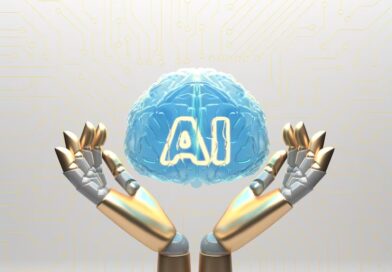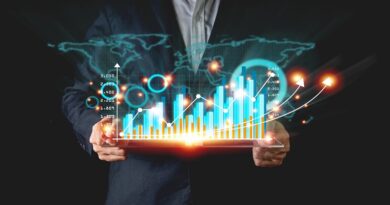Who owns your data? Re-imagining data management for Web3
Where does your data come from, and where does it go?
Every movement on the internet generates data, and nearly all that data is captured. When a person uses Google, for example, Google may make use of the person’s ID, IP, all the emails that the person writes and sends, their payment information, their YouTube comments and their stored documents, photos, and videos. Most would agree that the shortened list of what the internet knows about every individual using it is worrying at best. These days, it is not news that big tech companies know more about us than we would want them to know, but almost everyone is also uncomfortable with how loose and fast their data is gathered. One study found that 81% of Americans feel that they have little or no control over the data that companies collect from them. It also revealed that the same percentage of people feel that the risks of this data collection outweigh any benefits of sharing information. Additionally, 59% of Americans have little or no understanding of how their data is used by the companies that collect it. Yet, the biggest data collectors keep telling us they want to know everything about us so they can “tailor experiences.” No thanks, we can do without the creepy ads. Originally, one of the primary purposes of this data collection was to market products and services more effectively. Now, data usage has evolved beyond marketing. The likes of Facebook and Google still collect information to build marketing profiles and target their ads with uncanny specificity. However, they and other tech giants have evolved, harnessing their users’ data in new ways to create and refine systems like artificial intelligence (AI). In 2020, when Tesla began developing autonomous driving technology, every Tesla car that implemented autopilot features was also harvesting data on the program to improve the technology. The cars recorded the moments in which drivers took over from autopilot and corrected their course, for example. Tesla then knew how to improve autonomous driving in those situations, so that human intervention would be less necessary in the next iteration of its autonomous driving software. This example of data collection demonstrates the value of data in improving user experiences. Tesla collected the data from self-driving cars to further develop its technology, making it safer and better for its drivers. That network of communication between Tesla’s cars and the company’s engineers added value for end-users. Additionally, this collection was transparent; drivers knew that the autonomous driving program was being monitored for improvement, and they could view the data being uploaded from their cars after it was collected. Data is a valuable tool for the progression of technology.What would happen if you had ownership over your data?
If data could be democratized, then individuals, not just giant corporations, would be able to profit from it. Take, for example, the above-mentioned Apple-Meta data feud. If individual users could harness and share their own data, then the wars of today’s technology giants wouldn’t harm a small business owner who wanted to advertise to a specific group of people. In a decentralized data marketplace, that business owner could directly pay specific groups of people for data on their interests and locations, instead of paying a centralized entity like Facebook for the same information. Those groups of people would profit from sharing their data. They would know exactly where and why their data was being used, eliminating worries about dubious data usage. The business owner would profit from increased, specific exposure of their business through transparent marketing tactics. Internet data is not the only thing that can be harnessed and shared for profit. With smartphones, dashcams and drones, people collect valuable, real-time, geographical information every day without any intention of profiting from it. This sort of information is valuable to everyone, from surveyors to researchers. If this data were monetized, it would provide additional passive income for its users and increase the amount of available data for improving technology and conducting research. Much like Tesla’s use of its cars’ data, this additional availability of knowledge would allow for a creative and revolutionary expansion of technology at the individual level.Evolving technology calls for a decentralized data market
Blockchain technology offers solutions for democratic data sharing and for the monetization of that data directly by those who own and contribute it. With the distributed ledger technology that blockchain provides, ownership of data can be inscribed on a public ledger, and everyone can verify ownership. This makes it simple to rent or sell various kinds of data for use by Web3 applications. In an era where data is king, democratic ownership of data is more necessary than ever. For this reason, re-imagining data ownership has always been a driving force of Web3. Sharing data is necessary for the evolution of technology, but it can now be accomplished in a trustworthy, transparent way through blockchain technology.See More

Faster Insights with Splunk AI Assistant for SPL: Now More Personal Than Ever
Splunk AI Assistant for SPL has revolutionized how users interact with Splunk’s powerful Search Processing Language (SPL), making data analysis more

From Complexity to Clarity: Leveraging AI to Simplify Fraud, Waste, and Abuse Investigations at Every Level
Fraud, waste, and abuse pose significant challenges across all sectors, from corporate enterprises to federal institutions. With increasing scrutiny from

Beyond the horizon: Navigating the bridge between today’s tech and tomorrow’s AI
On the calendar, a year has 365 days. But in the world of AI, it often feels like every month
See More Blogs

Faster Insights with Splunk AI Assistant for SPL: Now More Personal Than Ever
Splunk AI Assistant for SPL has revolutionized how users interact with Splunk’s powerful Search Processing Language (SPL), making data analysis more

From Complexity to Clarity: Leveraging AI to Simplify Fraud, Waste, and Abuse Investigations at Every Level
Fraud, waste, and abuse pose significant challenges across all sectors, from corporate enterprises to federal institutions. With increasing scrutiny from

Beyond the horizon: Navigating the bridge between today’s tech and tomorrow’s AI
On the calendar, a year has 365 days. But in the world of AI, it often feels like every month




